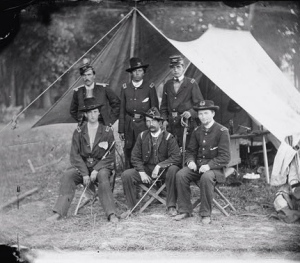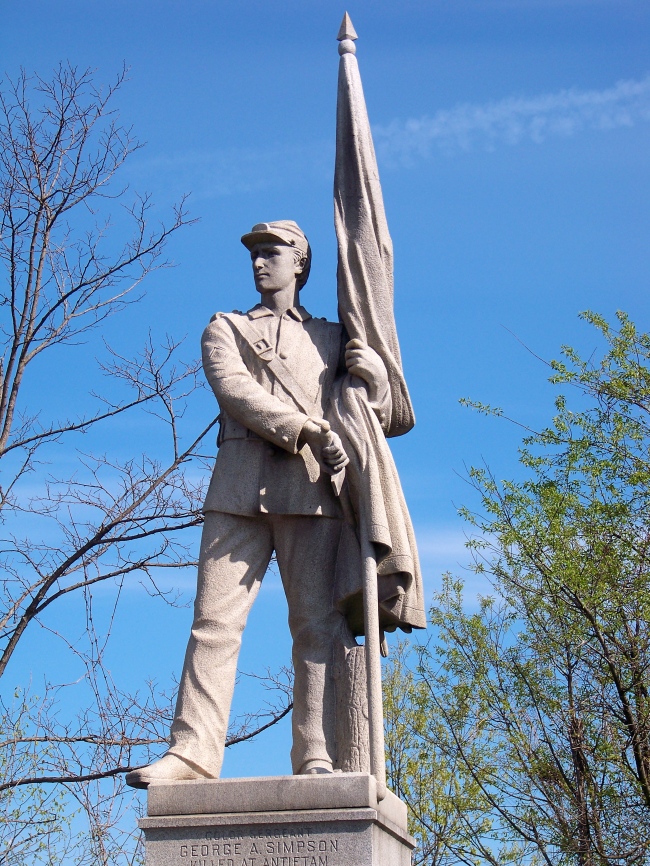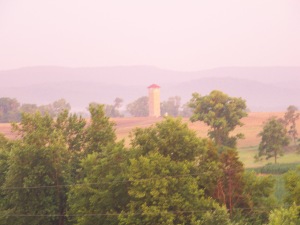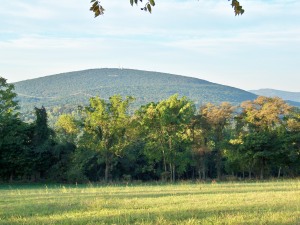
Group of Federal artillery officers at Antietam
Stephen Vincent Benet recounts the futility and frustration of smoothly translating a military plan of execution into the hard and cold reality of battle as he describes the Battle of Bull Run in his poem John Brown’s Body.
This poem opens William Hasslers classic book George B. McClellan Shield of the Union.
“If you take a flat map and move wooden blocks upon it strategically, The thing looks well, the blocks behave as they should.
The science of war is moving live men like blocks
And getting the blocks into place at a fixed moment.
But it takes time to mold your men into blocks
And flat maps turn into country where creeks and gullies
Hamper your wooden squares. They stick in the brush,
They are tired and rest, they straggle after ripe blackberries,
And you cannot lift them up in your hand and move them.
A string of blocks curling smoothly around the left
Of another string of blocks are slow
To move, when they start they take too long on the way –
The General loses his stars and the block-men die
In unstrategic defiance of martial law
Because still used to just being men, not block-parts
As one of a privileged number of people – rangers, volunteers and battlefield guides who humbly look forward to supporting the commemoration of the 150th anniversary of the Battle of Antietam, it will be our challenge, and our honor to turn the abstract battlelines on a map, and the little wooden block-men as Benet refers to them, into the living breathing men like the artillery officers pictured above and a hundred thousand others who fought ferociously, demonstrated unbelievable bravery, feared for their lives, witnessed indescribable carnage, died in droves, were wounded and maimed by the thousands, or who survived to fight other battles, and maybe even survive this terrible war, to forever change America forever. It is in large measure to them that we work so hard to get it right at this years battle anniversary now only 50 days away. Come to Sharpsburg in September.
Filed under: Uncategorized | Leave a comment »
 I am humbled and gratified to have received over 90,000 visits to Antietam Voices and 50,000 visitors to South From the North Woods. I have been really busy these days and sadly have neglected my two friends but I will be back soon. I have been doing lots of research on West Pointers at Antietam, the Regular Army artillery batteries, and of course my quote collection as well. Please stay tuned and thanks for your interest.
I am humbled and gratified to have received over 90,000 visits to Antietam Voices and 50,000 visitors to South From the North Woods. I have been really busy these days and sadly have neglected my two friends but I will be back soon. I have been doing lots of research on West Pointers at Antietam, the Regular Army artillery batteries, and of course my quote collection as well. Please stay tuned and thanks for your interest. 










